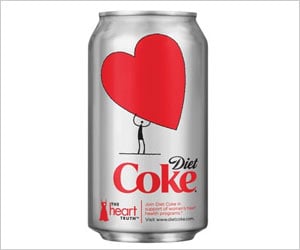Stem cells to reverse the signs of aging are now the buzz word in the beauty realm.
Stem cells to reverse the signs of aging are now the buzz word in the beauty realm. However experts are skeptical about the significance of the stem cells, applied topically to reduce wrinkles and fine lines.
"The whole stem cell thing is by far overrated," said Dr. Noel Aguilar. "We've done tests with stem cells and without stem cells. Stem cells by themselves topically are not going to do much."He said that researchers are "in the process of quantifying what the effect is."
Research has revealed that the Trapped in Time Frozen Stem Cell Skin Therapy offered by Pink Patio, a medical spa contains only 3 percent stem cells of the topical solution. In addition the treatment also includes collagen and elastin, proteins that give skin its strength and elasticity.
Dr. John Gearhart , director of stem cell research at Johns Hopkins Medical School, was extremely skeptical of the rejuvenation therapy, saying, "This is a new one to me." According to him while several therapies did purport to inject stem cells into the skin to rejuvenate tissue he had not previously heard of a topical stem cell treatment.
According to Dr. Gearhart the skin naturally contains stem cells,. Buried deep in the skin, the cells give birth to new skin cells that work their way to the surface as dead tissue is sloughed off. He suggested that applying the bovine stem cells topically would not penetrate beyond the dead layers of skin on the surface to affect the healthy skin underneath.
He said, "I just don't understand how that would work. The (stem) cells wouldn't stay on your skin."
According to an e-mail from Paul Richards, a spokesman for the administration, "(T)his product does not appear to be approved by the Food and Drug Administration as a drug, medical device or biologic. In addition, once products are advertised as 'treatment' or 'clinically proven,' 'ideal for sunburns, post-laser treatment, etc.' (all terms used in promotional materials), these products would become drugs and not considered cosmetics."
She said, "It might have to change the way it's marketed. The information is only as good as we're provided with."
According to Dr. Sidney Wolfe , a physician with Public Citizen's Health Research Group, because the treatment is not classified as a drug, falling under the unregulated dietary supplement category consumers should be extremely cautious.
He said, "The burden of proof falls on companies for prescription drugs. The burden of proof for dietary supplements falls on the public and the FDA. It's a classic example of caveat emptor."
Therefore the treatments not being regulated, the information available to consumers is typically scant.
Although Stem cells do show promise of one day uncovering treatments for a host of ailments, the field of research is still in its infancy and researchers are trying to understand all of what they are seeing in the laboratory setting.
Dr. Gearhart said, "Much of what is going on in research is showing proof of concept." Stem cell researchers advise researchers to thoroughly investigate treatments they are considering for possible side effects.
Dr. Gearhart said, "There certainly is concern about this in the medical community."
Source-Medindia
NLA
 MEDINDIA
MEDINDIA
 Email
Email










